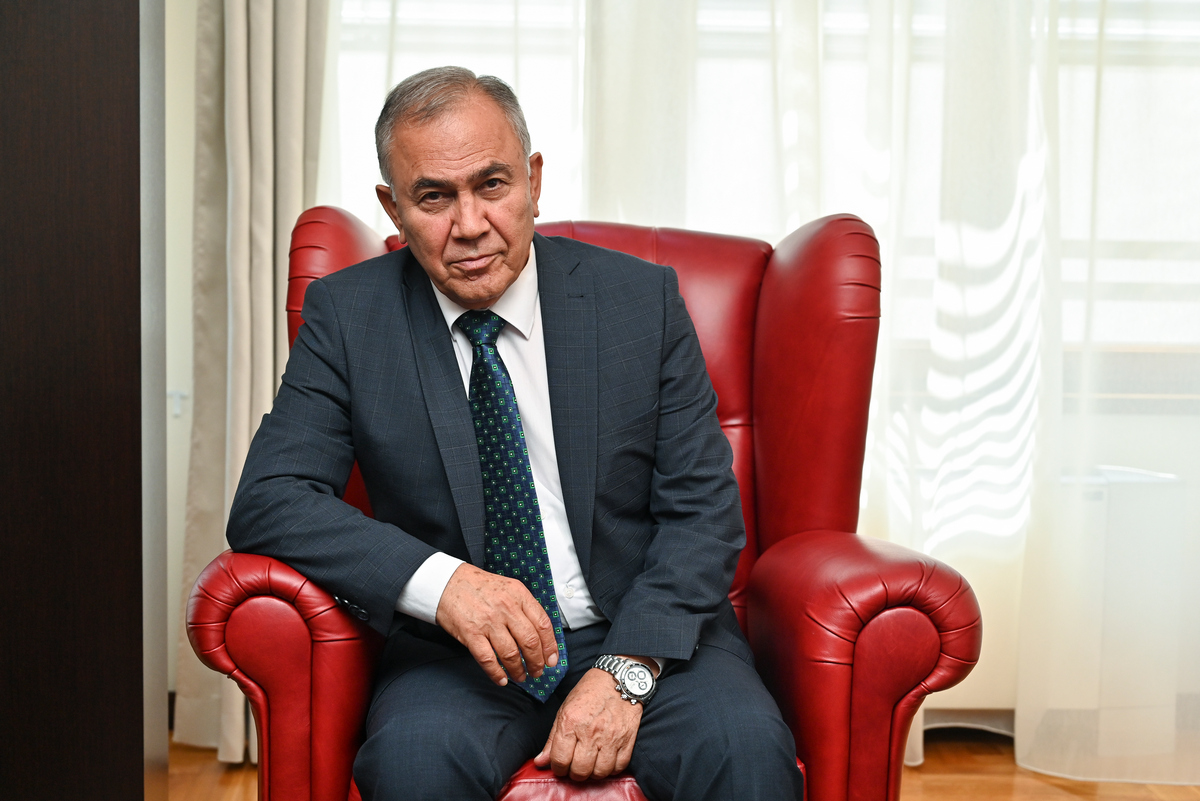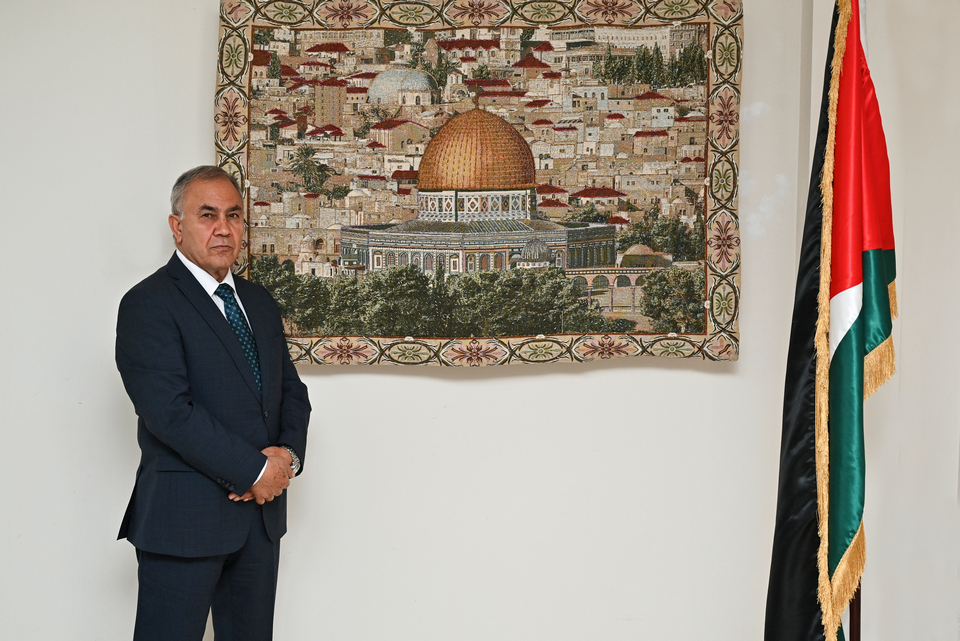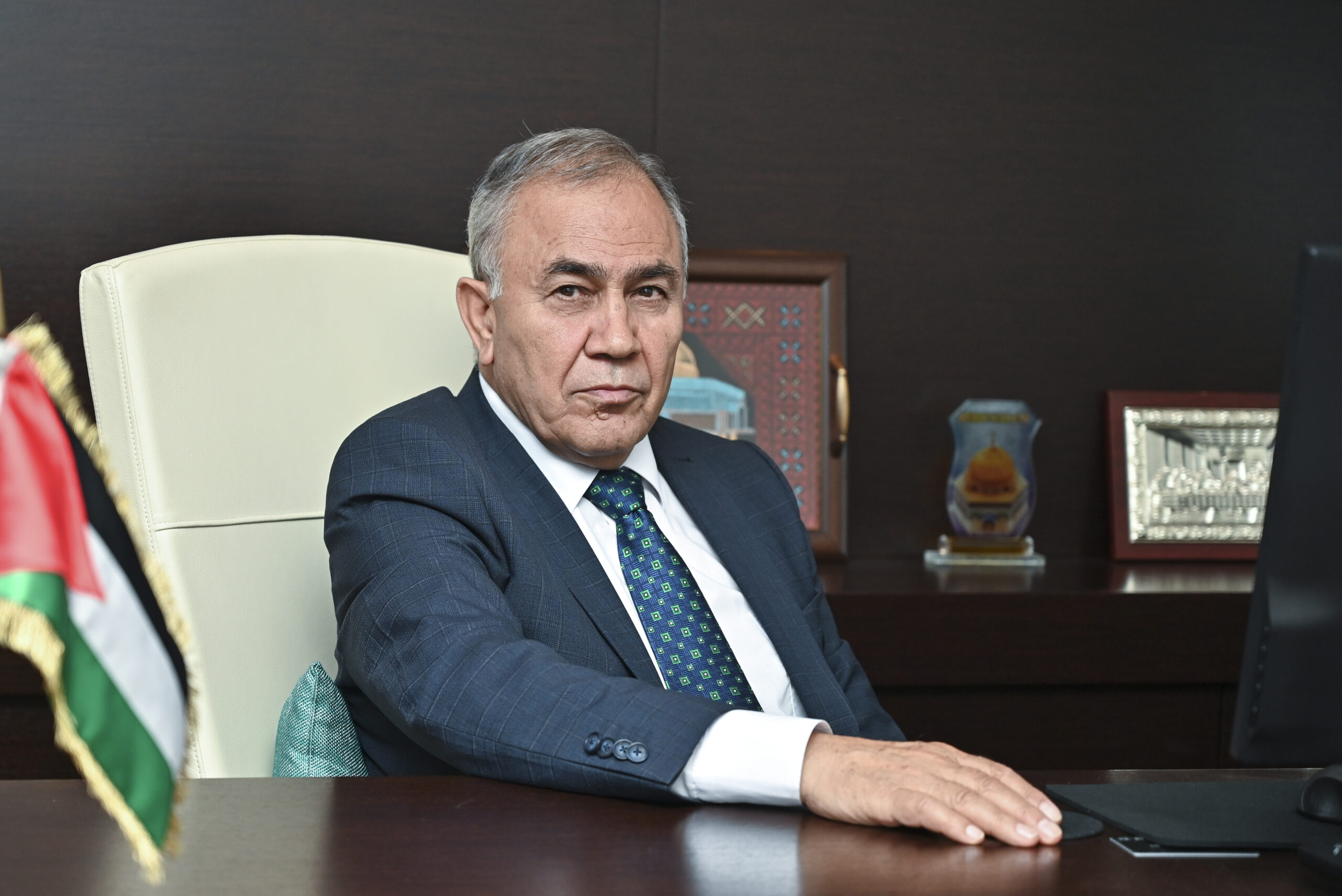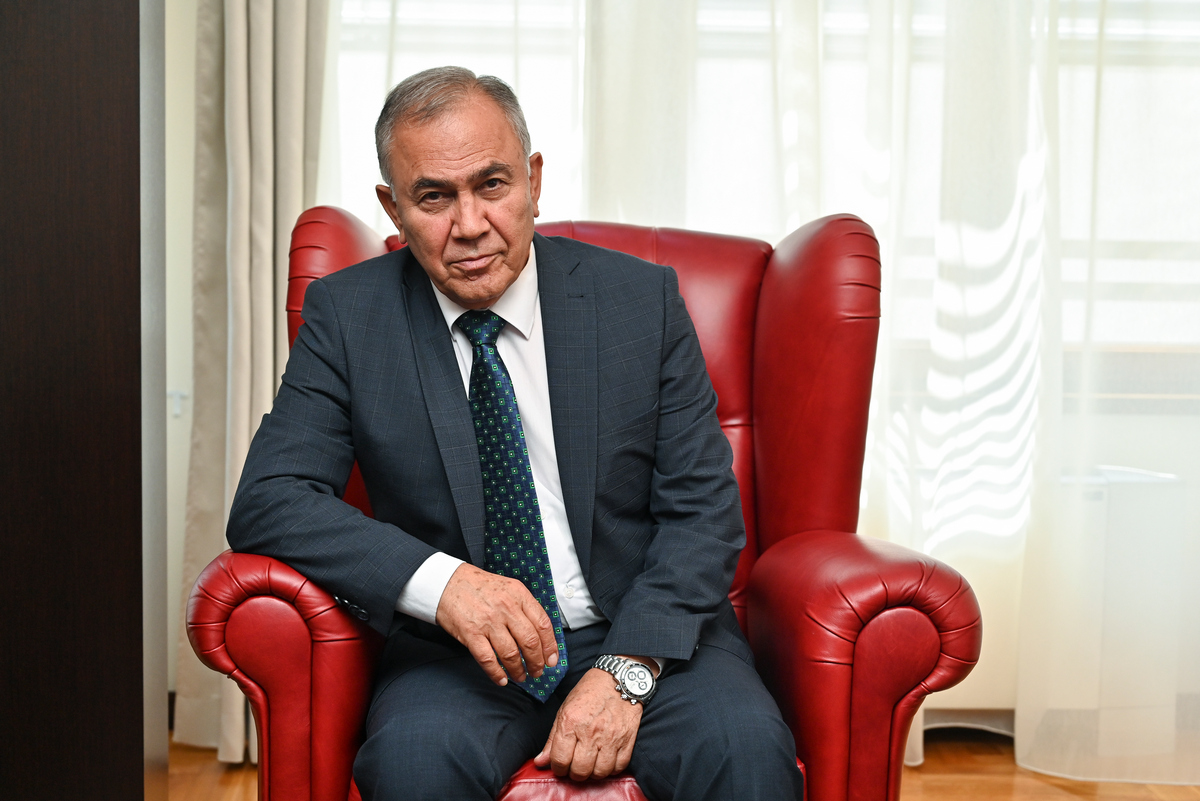The ties between Serbs and Palestinians are not recent as they go back a long way in history, from the time when Saint Sava stayed in Palestine in the 12th century

After 17 years of service in Serbia, and previously during his studies in Belgrade, our capital and our country left a deep mark on the outgoing Palestinian ambassador, H.E. Mohammed Nabhan. We talked with the ambassador shortly before his return to Palestine about why he considers Serbia his second home and the relations between the two countries and peoples.
In the 1970s and the early 1980s, numerous students from Arab countries studied in Serbia, yourself included. How would you describe that experience and the difference between how Belgrade looked then and now?
In the 1980s, Belgrade was a global capital, not in terms of buildings and cars Belgrade residents drove, but by the number of visits by people from other countries. There were so many students then who studied with the help of scholarships given by Yugoslavia which was, at that time, one of the leading countries in the Non-Aligned Movement. Yugoslavia was a serious and strong country that had connections with the whole world, especially with third-world countries. At that time, we, as young students, lived a very nice life in Belgrade, made a lot of friendships, and some even started families and stayed here. Today, Belgrade is much more beautiful, there is a lot of construction and it has been modernized. We can see that today’s Belgrade is a true metropolis. What I miss today is more socializing and young people strolling in the main city parks, but things were different in my time. I studied at the Faculty of Political Sciences and I must admit that it was not easy to finish my studies here. The professors were extremely strict but professional, and those of us who graduated are successful business people today.
You served as the Ambassador of Palestine in Serbia for more than 17 years. What are your favourite memories and what will you miss the most?
There are many memories that I will take with me. People I met during my stay in Belgrade made the biggest impression on me. I remember when I met the Chinese ambassador at the beginning of my mandate and we found out that we studied together in Belgrade and lived in the same dormitory. We reminisced about the student canteen when we ate bean soup and joked about various topics. These are memories that a person will remember forever. I had the opportunity to meet a number of Serbian politicians who left a pleasant impression on me and demonstrated that they love their country. In my student days life was simpler, we had great parties and in my opinion, it was a much nicer and more carefree time.
Palestine is the cradle of civilization and the land from which everything we believe in today came from
You’ve said that Serbs and Palestinians have gone through similar challenges. How similar are the two nations?
Our two nations are extremely similar. A number of Serbs were expelled from their country, as was half of the Palestinian population. A part of the Serbian territory is occupied, just as a larger part of the Palestinian territory is occupied. The West treated Serbs and Palestinians wrongly, which is why today we are two nations that are close and share a similar feeling towards the outside world. The ties between Serbs and Palestinians are not recent as they go back a long way in history, from the time when Saint Sava stayed in Palestine in the 12th century. Sava came to Palestine as a member of the then-ruling family in Serbia and spent three years in Palestine as a religious leader. At that time, my country was Christian, and Saint Sava was met with the greatest honours. These good ties were maintained for centuries and are reflected in today’s modern relations between Serbia and Palestine. Another similarity is that our countries are among global leaders in terms of the number of monasteries we have on our respective territories. Also, it is interesting to note that a large number of newborns in Palestine are named Sava because Sava is also a holy name in our country.

Palestine provides continuous support to the territorial integrity and sovereignty of the Republic of Serbia. Do you think that in today’s turbulent world with major geopolitical changes going on, small countries like Serbia can fulfil their interests by adhering to international law?
International law has its positive and negative sides. Small countries like Serbia can use the positive sides of international law and cite its norms when they need to protect national interests, protect territorial integrity and sovereignty. However, the negative side is that great powers dominate and implement international law according to their interests. When referring to small countries like Serbia and Palestine, I like to use an Arabic saying that goes – “even large boulders carry small stones”. This also reflects the situation with our two countries – we are small, but we are very important in the positions we occupy. Serbia is a key country in the Balkans, and without it, there is no peace and stability in this region. It has always been like that and it will always be like that. Palestine is the cradle of civilization and the land from which everything we believe in today came from. That is why Palestinians today cannot accept anyone to be their tutor – only God and no man can be their mentor. For this reason, we cannot accept the Israeli occupation and any form of injustice that is inflicted on us. The conclusion is that international law is a cornerstone that we can always refer to, but as long as the superpowers do what they want, it will be difficult for us, but we will endure.
International law is a cornerstone that we can always refer to, but as long as the superpowers do what they want, it will be difficult for us, but we will endure
As time progresses are we closer or farther away from finding the solution to the Israeli-Palestinian conflict?
At this point, it no longer matters whether we are closer or farther away from solving the problem. The bottom line is that there are only two possibilities for conflict resolution. One option is to divide into two states, where each nation will live in its own country and have good neighbourly relations, or for all live as equal citizens in a well-organized democratic country. There is no third solution. Currently, 14 million people live in this country that is located between the Jordan River and the Mediterranean Sea, which is called Israel or Palestine. More than half of these people are Palestinians. It is high time that the people sitting in Tel Aviv realized this and started serious negotiations with the Palestinians about a common future, and not continue bringing in the settlers and seizing our territory, which can only lead to further violence. And we all know that violence solves nothing, as history has proven countless times.
Since you have spent many years in our country, you witnessed many political and socio-economic changes our country went through. Can you compare Serbia now and from 20 years ago?
It is very different. I have witnessed political changes and I remember how Serbia looked in 2006 when I arrived in Belgrade. The country was much poorer then and it had a sparse infrastructure, while today progress is visible in all segments – the economy, IT sector, and infrastructural large-scale projects which are very important for Serbia. I am one of those people who see that Serbia has room to be one of the most advanced countries in this part of Europe. This requires peace and stability, as well as good neighbourly relations in the region because no one wants to invest in a country that has problems and instability.

In the last few years, many Palestinian students came to our country under the auspices of the World in Serbia scholarship programme. Our readers will surely be interested in finding out just how big is the Palestinian community in Serbia.
You see, we have two types of communities here. One is a community of students, of whom there are about 65 together with students who will come to Serbia this year. I am happy that young people are coming here to study medicine or natural sciences and then go back to Palestine and help our people there. A number of students stay here after studies, especially those who come from Gaza, given that they live in difficult conditions in their homeland. They are successful and respected people here today. I spoke with many people who stayed in Serbia and who are respected members of Serbian society. Another community of Palestinians came to Serbia a while ago, stayed and formed families here. Their number is between 150 and 160. They are mostly doctors who work in towns across Serbia, restaurant owners or tradesmen who have been successful businesspeople for many years. These are successful citizens who do not live at Serbia’s expense but participate equally in the country’s development.





